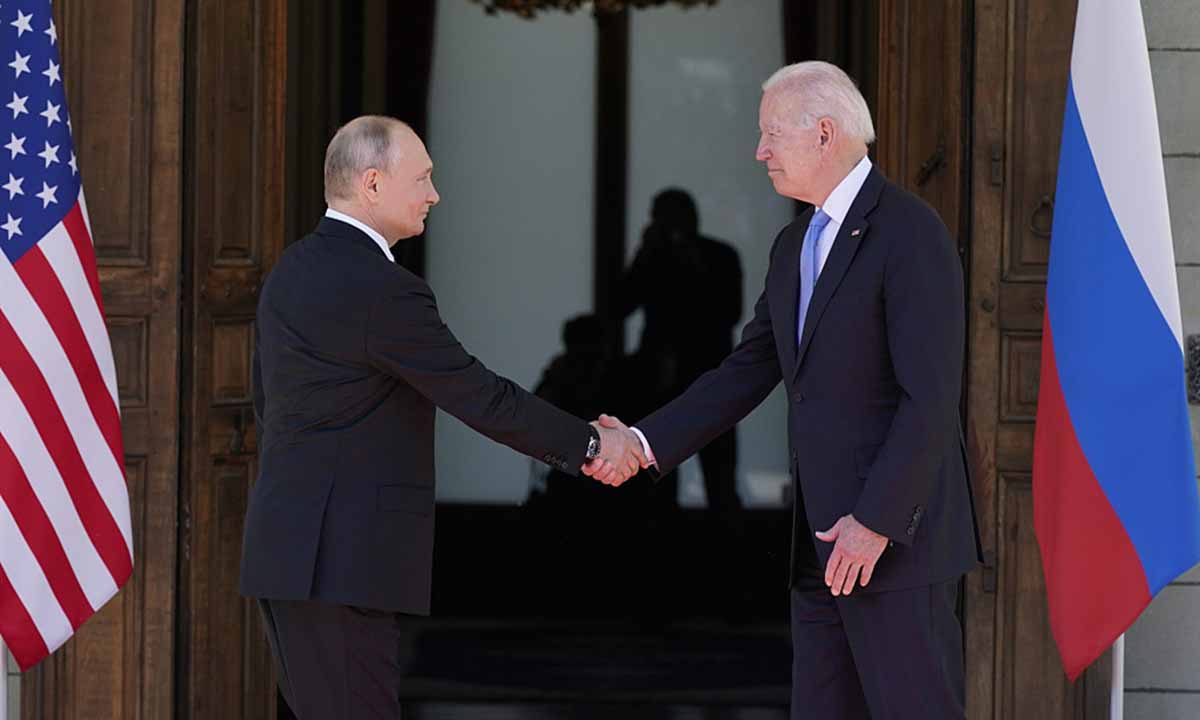US-Russia talks ‘business like’

Biden Putin Photo: VCG
The US and Russia said Wednesday they had business-like and substantive talks in Geneva in their second effort in as many months to bring stability to a fraught relationship.
The closed-door talks were a follow-up to June's summit, also held in the Swiss diplomatic hub, between Russian President Vladimir Putin and US President Joe Biden, who both described their first encounter as productive despite soaring tensions on multiple fronts.
US Deputy Secretary of State Wendy Sherman and Russian Deputy Foreign Minister Sergei Ryabkov spoke mostly about arms control - one area where Biden has shown a willingness to engage with Russia - and agreed to meet again in September.
"On the mood of the meeting, I would call it very down to earth, very business-like, very focused," Ryabkov told reporters, as quoted by Russian news agencies. State Department spokesman Ned Price said the discussions were "professional and substantive."
"We remain committed, even in times of tension, to ensuring predictability and reducing the risk of armed conflict and threat of nuclear war," he said in a statement.
US officials will brief NATO allies on the discussions during a visit Thursday to Brussels, he said. A senior State Department official described Wednesday's talks as "very broad-ranging" rather than specific, but said that working groups would meet to gauge areas for progress. "This dialogue really pertained to issues that relate or give rise to the threat of the potential use of nuclear weapons in a crisis or a conflict, or that threaten to destabilise the bilateral relationship," the official told reporters.
Ryabkov earlier said the talks would allow Russia to "understand how serious the mindset of our US colleagues is in terms of establishing a concentrated, energetic dialogue in strategic stability". But he added: "I would not raise the bar of expectations."
Shortly after taking office, the Biden administration extended the New START treaty with Russia on reducing nuclear arsenals, even as it vowed to raise pressure on Moscow on other areas.
There are tensions on multiple fronts between the two nations, with Washington blaming Moscow for a wave of cyberattacks, for which Russia denies any responsibility.












